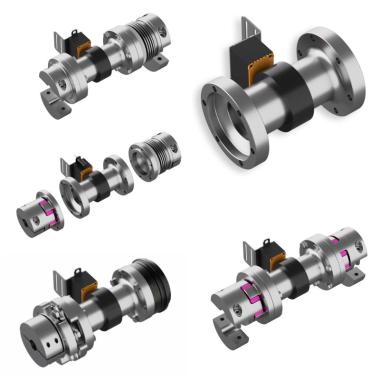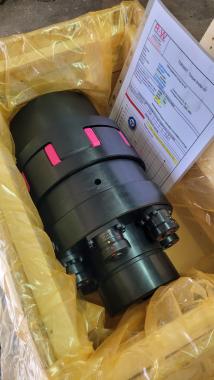Reindustrialization in France: levers of action to revitalize the territories

In a context of profound transformation, the reindustrialization of France presents itself as a crucial issue for our country's economy. Since 2018, the French government has led a policy of industrial revitalization, embodied by ambitious initiatives such as the Territoires d'industrie programs https://agence-cohesion-territoires.gouv.fr/territoires-dindustrie-44 or France 2030 https ://www.economie.gouv.fr/france-2030 . Thus, as specified by the Government https://www.info.gouv.fr/actualite/accelerer-la-reindustrialisation-de-la-france nearly 90,000 industrial jobs have been created and nearly 300 new factories have been established . However, many regional disparities remain, some having managed to stand out. Caroline Granier, doctor of economic sciences and project manager at La Fabrique de l'industrie, reveals the keys to the success of the revitalization of these territories, drawing in particular on the examples of Cognac and Alsace.
Can you tell us in a few words what the Industry Factory is?
Created in 2011, La Fabrique de l'industrie https://www.la-fabrique.fr/fr/ is a reflection platform dedicated to the perspectives of industry in France and internationally. This “think tank” analyzes industry’s relationships with territories, the attractiveness of industrial professions, as well as the opportunities and challenges linked to globalization, technical change and competitiveness. By collaborating with numerous industrial and institutional partners, we compare our points of view and our analyses… An essential approach to accurately dealing with a complex reality. We do not lobby. The role of La Fabrique is therefore to provide valuable insight into these subjects.
As part of your research on “Remaking industry into a territorial project”, what are the action levers that you have identified that promote successful reindustrialization?
Within the Industrial Territories Observatory which brings together the Banque des Territoires, the Institute for Research of the Caisse des Dépôts, the National Agency for Territorial Cohesion, Intercommunalités de France, Régions de France and La Fabrique of industry, we study together the industrial performance of the territories. Some territories stand out for their dynamism, others show a continuous decline in their industrial employment rate. Although there is no magic formula, successful reindustrialization relies on a specific combination of essential elements.
Therefore, to attract industry to its territory, it is essential to have a qualified workforce. This workforce requires an attractive living environment, in particular by offering employment opportunities for spouses by offering services such as schools or a music conservatory, or by redeveloping a parking lot into a collective living space. .
Land is also an essential ingredient; due to its rarity, it is necessary for communities to make judicious choices in terms of land use planning. (Editor's note: According to a 2024 Senate report https://www.senat.fr/rap/r23-306/r23-30625.html : two thirds of intercommunal authorities have already been forced to refuse business establishment projects lack of available land.).
It is also essential that manufacturers have an ecosystem of suppliers, subcontractors and logistics companies
In addition, adequate energy capacity (electrical connection for example) is necessary for the operation of factories… “Turnkey sites 2030” systems https://www.entreprises.gouv.fr/fr/actualites/dispositif-sites- cles-main-france-2030-announcement-of-the-first-winners aim to meet this expectation
The proximity of transport infrastructure, such as waterways, railway junctions and major roads is also fundamental, both for the transport of raw materials but also for that of finished products.
Furthermore, the capacity for innovation is crucial, hence the interest in being close to research centers to encourage the exchange of knowledge.
Finally, cooperation between the different actors is essential. Effective governance and collective mobilization, involving industry, communities and civil society, are essential to successfully carry out industrial projects. This mobilization makes it possible in particular to address questions of acceptability of projects by local residents and to guarantee a harmonious transition for the territories concerned.
Thus, even if perfect replicability from one territory to another seems unrealistic, we propose, through the studies that we carry out within the Fabrique de l'Industrie, ideas which can be adapted by those wishing to continue or initiate a new industrialization.
Two concrete examples from studies carried out by Etienne Fouqueray and Emmanuel Nadaud for La Fabrique de l'Industrie.
Cognaçais… an industrialization that has evolved!
For example, take the case of the Cognac region, which relies on the dynamism of its flagship product, cognac. What arouses interest is the way in which this specialization is sustained and remains a major asset for the region. Over the years, manufacturers have adapted their strategy, in particular by diversifying spirits to reduce dependence on a single product, knowing that 98% of Cognac is exported. This know-how, present in the region for several centuries and protected by a controlled designation of origin (AOP), is continually evolving. At the same time, the installation of manufacturers of innovative bottles, original labels and barrels contributes to enriching the local ecosystem. This strategic development is made possible thanks to the involvement of the National Cognac Office, which brings together stakeholders around a common strategic vision, with the support of local elected officials mobilized on the project.
Alsace: a territory of industrial culture
This territory, characterized by a diversity of companies from numerous sectors, demonstrated a certain resilience to the decline in industrial employment between 2007 and 2018. This robustness results from a combination of specific local resources. Mainly made up of SMEs and mid-caps operating in various sectors, around 40% of these companies are owned by German groups, a legacy of the geographical proximity and historical relations between France and Germany. This proximity is reflected in linguistic and cultural similarities, as well as a tradition of shared innovation, fostered by close partnerships between universities and businesses. Alsace also stands out in the field of Industry 4.0, benefiting from a head start compared to other French regions. The Alsace Development Agency (ADIRA), active since the 1970s, plays a crucial role here by bringing together stakeholders and businesses around common projects. Finally, the region is renowned for the family governance of many of these companies, which favors long-term strategies and local roots.
Our other news
See allJoin the largest community of industrial suppliers
- Helping you with your ongoing technology watch
- Provide you with detailed supplier statistics
- Give you international visibility
Discover the largest catalogue of industrial products on the market
- To offer you the best catalogue of industrial products on the market
- To guarantee you a 100% secure platform
- Enable you to have live remote exchanges


 Français
Français 







